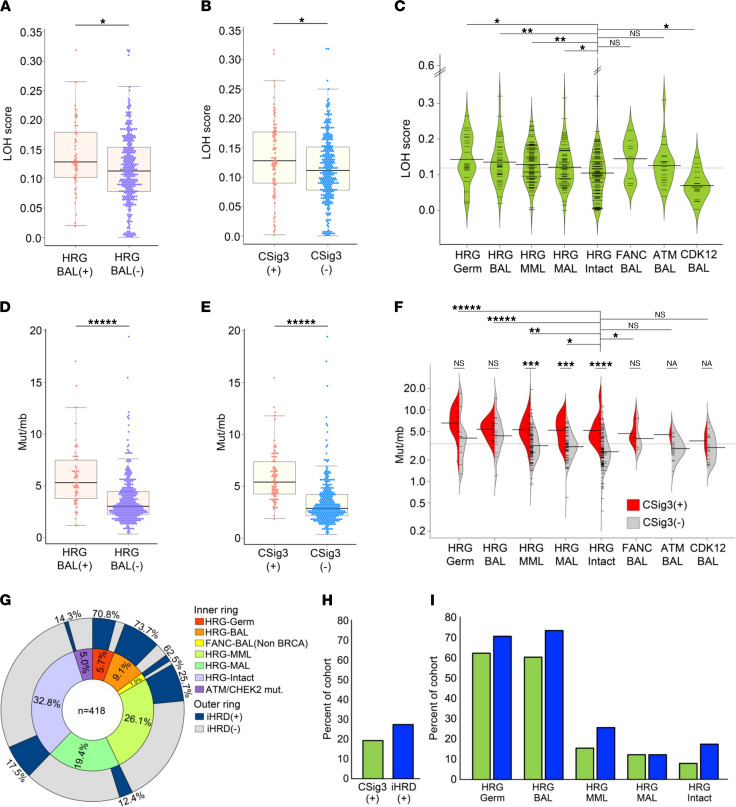Figure 2. Loss of heterozygosity and somatic mutation burden associated with HRR deficiency mutation signatures.
(A) Loss of heterozygosity (LOH) scores in tumors with HRG-BAL (n = 53) versus tumors without HRG aberrations, excluding those with hypermutation (n = 349) (P < 0.01). (B) LOH scores between tumors classified as CSig3(+) (n = 81) and CSig3(–) (n = 317) (P < 0.03). (C) LOH score distribution across tumors with molecular aberrations involving DNA repair processes. Compared with LOH scores of tumors without HRG alterations (HRG-Intact), LOH scores are significantly higher in tumors with HRG germline loss (HRG-Germ), P = 0.005; biallelic loss of a core HRG (HRG-BAL), P = 0.014; monoallelic loss of multiple core HRGs (HRG-MML), P = 0.0009; and biallelic ATM alteration, P = 0.043. Tumors with biallelic cyclin dependent kinase 12 (CDK12) loss have LOH scores significantly below tumors with other HRG aberrations (P = 0.029). (D and E) Somatic single nucleotide variants (sSNVs) in tumors (D) with HRG-BAL (n = 54) or (E) classified as CSig3(+) (n = 81) versus CSig3(–) (n = 317) (P < 0.00001). (F) Distribution of sSNVs across tumors with molecular aberrations involving DNA repair processes. Compared with sSNVs/Mb in tumors without HRG (HRG-Intact) (n = 3.3 ± 2.3), sSNVs/Mb are significantly higher in tumors classified as HRG-Germ, HRG-BAL, and HRG-MML (P < 0.01). Within HRG-MAL and HRG-Intact, tumors classified as CSig3(+) had greater numbers of sSNVs compared with CSig3(–) tumors (P < 0.001). (G) Stratification of mPCs by iHRD classification status across germline and somatic alterations in genes involved in DNA repair (n = 418). (H and I) Frequency of CSig3(+) and iHRD(+) tumors in (H) the entire cohort of 418 tumors and (I) each genomic subclass. (A–F) Mann-Whitney U. FDR: * ≤ 0.05; ** < 0.01, *** < 0.001, **** < 0.0001, ***** < 0.00001.

